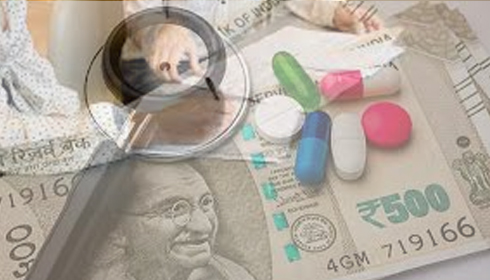
GST Council Set to Review GST on Health Insurance
Union Finance Minister Nirmala Sitharaman will chair the 55th GST Council meeting in Jaisalmer on December 21. The Goods and Services Tax (GST) framework for life and health insurance, which has far-reaching implications for the healthcare industry, will be the topic of discussion at the meeting. With rising healthcare prices and worries about insurance affordability, the Council's choices might have a significant impact on how millions of Indians obtain healthcare.
Currently, the GST rate on health insurance premiums is 18%. People have extensively criticised this high tax burden for discouraging them from obtaining health insurance, a crucial tool for managing medical bills, particularly in times of crisis. In a country where healthcare out-of-pocket expenses make for a sizable portion of personal spending, lowering the GST on health insurance could alleviate financial strain on individuals and families, particularly those in the middle and lower income brackets.
The Group of Ministers (GoM) on Health Insurance, which met on December 16, made recommendations to revenue officials from both the central and state governments. Although the study's specific contents remain unknown, we commonly assume that the panel has advocated for tax rationalization on health insurance premiums to enhance accessibility. The Council meeting will review these recommendations.
India's healthcare sector is facing significant challenges. On the one hand, medical inflation has skyrocketed, with the cost of treatments, hospitalizations, and medications increasing at a rate of 8–10% per year. On the other hand, health insurance penetration remains low, with only approximately 37% of Indians insured by any health insurance scheme, according to recent research. The current GST rate exacerbates the affordability issue by requiring individuals to pay an additional 18% on already high premiums.
Healthcare professionals think that lowering the GST on health insurance could encourage more people to purchase coverage. The impact would be particularly substantial for senior persons and people with chronic conditions, who frequently pay higher premiums. Lower GST rates would not only reduce the financial burden but would also be consistent with the government's objective of achieving Universal Health Coverage (UHC), as expressed in the National Health Policy of 2017.
Healthcare professionals, insurers, and policymakers are anxiously watching the forthcoming GST Council meeting. The Council faces a twofold challenge: reconciling the need for money with the requirement to make healthcare affordable. While GST rationalization for health insurance may result in short-term revenue losses, the long-term benefits, such as improved health outcomes and less economic hardship for households, may offset immediate fiscal concerns.
Furthermore, people view lowering the GST on health insurance as a crucial step in building a robust healthcare ecosystem. The pandemic highlighted the significance of health insurance, but its cost remains a concern. Policy decisions made at the Jaisalmer summit could serve as a watershed moment in closing this gap.
As India faces escalating healthcare expenditures and limited insurance penetration, the 55th GST Council meeting provides an opportunity to drive real reforms. By reviewing the GST structure for health insurance, the Council may build the groundwork for a more inclusive and accessible healthcare system. For millions of uninsured Indians, this decision could make the difference between financial security and crippling medical bills.
The healthcare sector is eagerly awaiting the council's conclusions, hoping for reforms that prioritize affordability, accessibility, and long-term health security for all citizens.